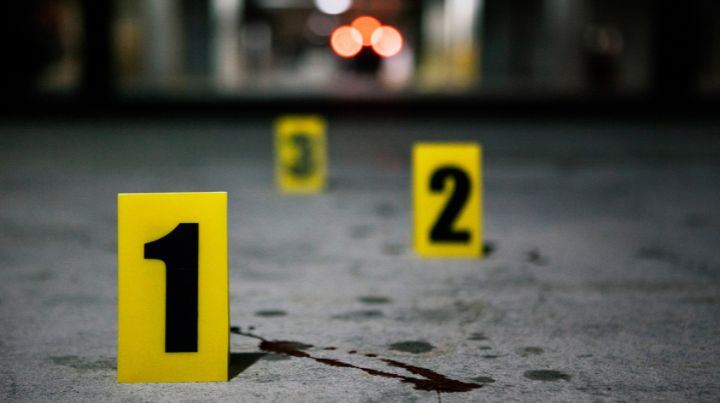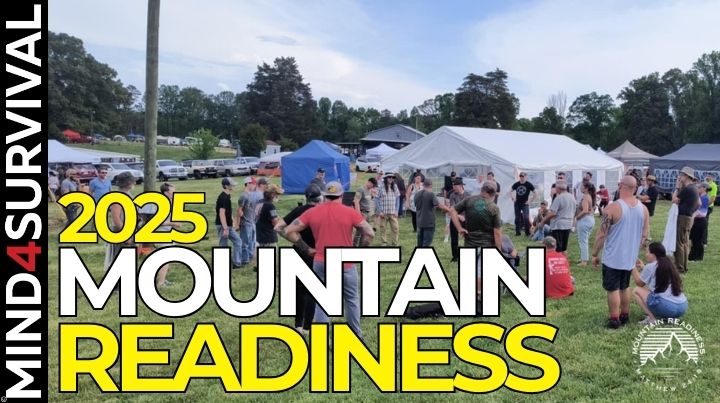How to Prepare for a Violent Future

I don't like to make predictions, but I have gone out on a limb a few times. One forecast I was never scared to make is the economy getting significantly worse across the board and even collapsing in certain regions. The second is the consequence of that, or the explosion in social unrest. It's time to prepare for a violent future.
I admit that saying the crap will hit the fan without a timeline is a pretty safe call. It may take years or even decades for the existing debt-and-fiat-based system's disaster to materialize. I've learned not to underestimate the system's resilience after initially believing it to be fragile. The status quo will fight as hard for survival as you, me, or any other living thing.
But the rubicon has been crossed, and we are beginning to see and feel the effects. No matter how things turn out, the way ahead will be an SHTF all on its own. Practically speaking, that's what everyone ought to be worried about.
What Kinds of Violence Might We Anticipate?
Let's ignore major events like invasions, terrorism, and civil and nuclear conflicts for now. Not that these events are improbable; after all, we are arguably experiencing the most turbulent zeitgeist since the period pre-World War II. It's the Fourth Turning, and anything can happen.
However, likelihood is different from possibility. I want to concentrate on the forms of violence that we are more likely to witness everywhere soon. Some countries are already on the verge of anarchy. Those currently in a fragile situation will go through extreme turmoil when the global economy takes a nosedive. Some will experience revolutions.
As previously said, anything is possible. But unlike some doomsday preppers, I don't see more developed and stable nations like the US and other western democracies going full-WROL. These, along with some developing countries, could be spared from such drastic and broad upheavals. Or at the very least, be able to contain more radical and widespread movements.
I could be wrong about that, of course. Whatever happens, there is no way to stop the global escalation of crime, extremism, strikes, and protests. Also, even in the most developed regions of North America and western Europe, there will be states and cities experiencing periods of more grave societal disintegration and pervasive chaos. In several of these, we already observe public uprisings.
Widespread Manifestations
Large-scale protests and strikes were frequent in the late 1970s and 1980s due to the troubled conditions of the economy, job market, energy sector (Oil Shock), Cold War, and cultural revolution. In essence, those are the same underlying problems that are today fueling tensions and discontent among people all across the globe.
Therefore, as the world descends into a crisis and – to make things worse – governments everywhere turn the screws on the population, expect the same responses and activities. Already, protests and manifestations take place daily, everywhere. Next will be strikes and walkouts, as entire classes will protest for a variety of causes.
Do not mistakenly believe these actions are neither violent nor conducive to violence. Service, utility, and supply chain disruptions can enrage people and make things worse when circumstances are dire. I make another throwback to the 1980s.
Crime
I've been warning people for years about the impending flood of crime that will undoubtedly shock and impact all societies. Crime is the outward manifestation of economic, moral, cultural, and institutional decay. Therefore it plays a key role in what I refer to as Thirdworldization.
It's severe because it's pervasive, sneaky, and difficult to articulate in terms of how it negatively affects the population's mood. Believe me when I say that: I'm intimately familiar with both realities. I've traveled extensively in the First World, but I was born and spent the majority of my life in Brazil, a nation known for its persistent violence.
The Stages of Criminality
Civil unrest and crime are not the same everywhere. But it's more a matter of stage and progression than culture, institutions, population, or other inherent factors. Crime is typically uncommon, random, and less violent in the early stages in societies that are prosperous, secure, built on trust, and civilized (like the majority of societies in the First World).
As time passes, criminals multiply and feel more confident and emboldened. Then they start acting violently against the police, their victims, and each other. The next stage is organized crime, where criminals of all stripes band together and create cartels, mafias, factions, gangs, and the like—or join those that already exist.
They will reign from prisons, enclaves, and even other countries. These organizations will engage in savage warfare against one another for control of territory, narcotics, cash, weapons, revenge, and anything else, including trivial matters. They will have power over law enforcement, attorneys, politicians, and corporations through infiltration, influence and corruption (fear and money – ever heard of “plata o plomo“?).
Most middle and upper-class people won't see this network develop or function, and they might not directly experience the influence of these cartels in their daily lives. However, in the later stages, organized crime will control or influence routine crimes like muggings, robberies, carjackings, hijackings, and everything in between.
That's not even considering the recent wave of progressive movements like “defund the police” and public policies that, if not reverted quickly, are sure to incentivize lawlessness, if not downright promote a pro-crime environment, in some states of the US. In others, the decadence of public service and justice system from lack of funding will have a similar effect.
How to Prepare for a Violent Future
The first step to surviving in a volatile and dangerous environment is to change the mindset. It begins by acknowledging that the events I've just described, as well as others, may occur anywhere. For whatever rationale you have been given, I don't think there would be much difference in the US or Canada. Everywhere you go, people are essentially the same. The earlier you become aware of this, the better you can prepare.
Increasing situational awareness, street smartness, and social engineering skills are next. I can't emphasize enough how important it is to increase safety in fluid and dangerous contexts. Don't ignore guns, but leaning too much on them isn't the best option by a long shot. Best to lay low, keep your head on a swivel, and stay out of dimly lit areas. The simplest tactics are frequently the most effective.
Additionally, information and knowledge can be effective allies. Learn about third-world living conditions. Numerous channels and professionals publish regular films that analyze actual crimes and offer advice on better handling them. Although it could initially be shocking, you'll eventually come to understand the true nature of predators and criminals; this will broaden your knowledge and provide you with an advantage.
Another critical step is to improve defense at the home, car, and place of work. Again, examining the strategies and practices used in areas that have long had to cope with high rates of crime and violence can be helpful. These are based on reality rather than marketing, myths, or doomsday fantasies.
Don't forget to prepare for online crime and all the other kinds of fraud. From this point forward, we must increase our skepticism, critical thinking, and attention to prevent being discovered by thieves, hackers, and scammers. Finally, be ready for strikes and protest-related shortages and unrest by stockpiling essentials like cash, first-necessity supplies, and developing strategies to stay mobile.
Conclusion
When I say “prepare for violence,” I don't mean just physical violence or material preparation. Being ready to live in a violent world and society requires arming oneself with psychological and philosophical fortitude as well. That's how people living in less wealthy and civilized places cope with challenging environments.
Take all the practical measures presented here, added to other important ones you deem necessary considering your particular context. But never forget that our mind is our most effective tool to deal with and adapt to the changes around us.
Additional Resources:
- Street Survivalism by Fabian Ommar
- How to Get Inside a Criminal Mind to Stop a Bad Guy
- 11 Best Tips for How to Protect Yourself Online!
- How to Increase Your Everyday Situational Awareness
Related Articles
FREE Guide
Read the Best Seller
Join Mind4Survival
Stay informed by joining the Mind4Survival! 100% Secure! 0% Spam!
Affiliate Disclosure...
Mind4Survival is a free, reader-supported information resource. If you make a purchase through our link, we may, at no cost to you, receive an affiliate commission.
Do You Want To Be Ready No Matter What?

Download our free 39-page guide with interactive, 7-Day Emergency Kit Checklist and take the first step toward real preparedness.
- Know exactly where to start.
- Save time and money.
- How-to build a complete Basic Emergency Kit.
- Level up your safety and security.
Join Mind4Survival
Stay informed by joining the Mind4Survival! 100% Secure! 0% Spam!








Thanks for this Fabian. I appreciate all you do to help us to get prepared. I am seeing more crime up here in my rural part of Texas, because more people are moving here. Pray and Prepare is my motto.
Another great article. Thanks a lot for the information. Stay safe.
Great article. Thanks